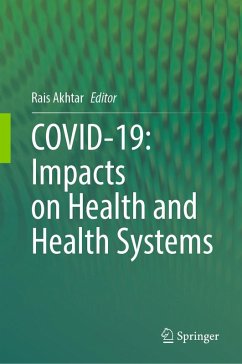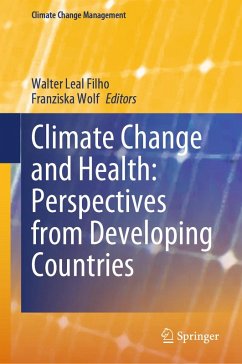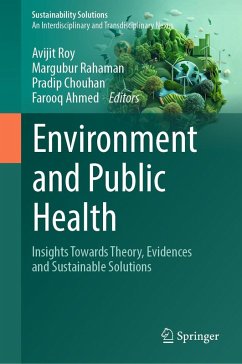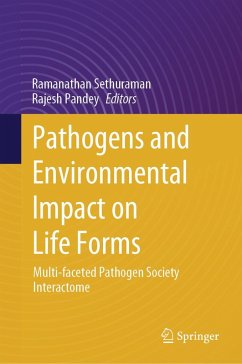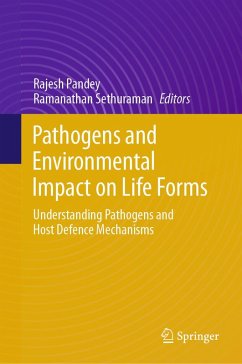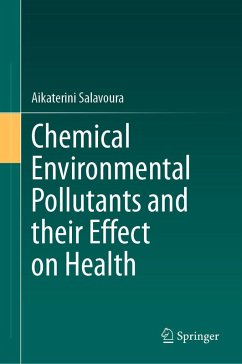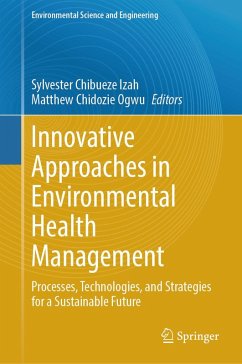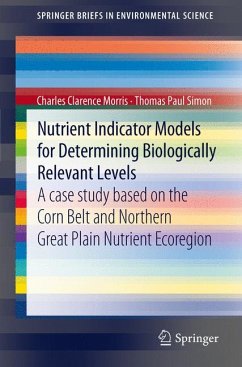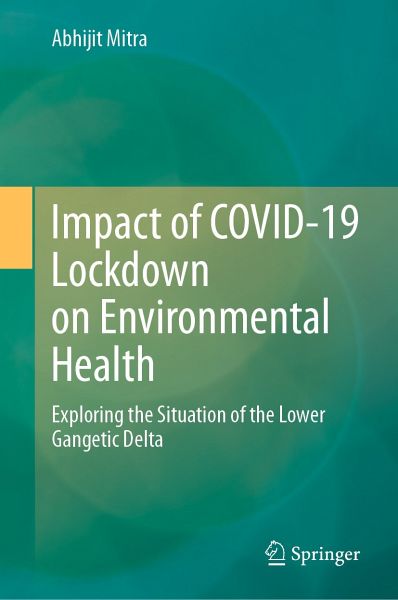
Impact of COVID-19 Lockdown on Environmental Health (eBook, PDF)
Exploring the Situation of the Lower Gangetic Delta
Versandkostenfrei!
Sofort per Download lieferbar
120,95 €
inkl. MwSt.
Weitere Ausgaben:

PAYBACK Punkte
60 °P sammeln!
This book examines the impacts that the COVID-19 lockdown has had on environmental and ecological health, with a focus on coastal ecosystems in the Lower Gangetic Delta. The book begins with an overview of COVID-19's spread and impact before and after the lockdown in the focus region, then addresses the specific impacts that the lockdown period had and continues to have on air quality, marine and estuarine water quality, coastal biodiversity, and the livelihoods of the region's inhabitants, especially those who live below the poverty line. The decrease in human activity combined with the compl...
This book examines the impacts that the COVID-19 lockdown has had on environmental and ecological health, with a focus on coastal ecosystems in the Lower Gangetic Delta. The book begins with an overview of COVID-19's spread and impact before and after the lockdown in the focus region, then addresses the specific impacts that the lockdown period had and continues to have on air quality, marine and estuarine water quality, coastal biodiversity, and the livelihoods of the region's inhabitants, especially those who live below the poverty line. The decrease in human activity combined with the complete closure of various sectors, including air travel, oil and gas drilling, and construction, has had a pronounced effect on biodiversity and overall environmental health that is yet to be fully realized. The book sheds light on these changes and assesses how biodiversity, ambient air quality, and ecosystem functioning will progress as COVID-19 remains a threat and the lockdown persists. The studywill be of interest to researchers, government officials and professionals dealing with disaster management, environmental science, biological science, and health.
Dieser Download kann aus rechtlichen Gründen nur mit Rechnungsadresse in A, B, BG, CY, CZ, D, DK, EW, E, FIN, F, GR, HR, H, IRL, I, LT, L, LR, M, NL, PL, P, R, S, SLO, SK ausgeliefert werden.



